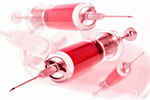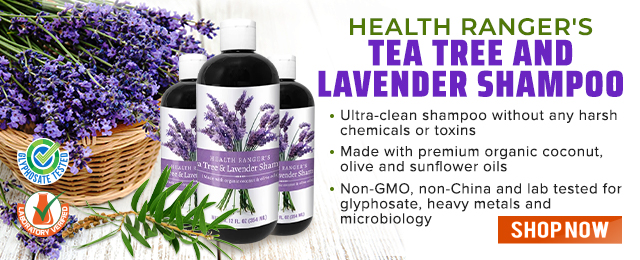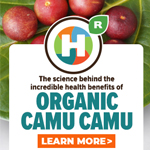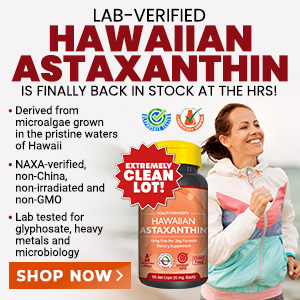
Thailand issues license to manufacture generic version of Efavirenz; snubs Merck AIDS drug monopoly
Monday, December 04, 2006 by: Jessica Fraser
Tags: AIDS, intellectual property, drug patents
- Chemtrails unveiled: How the CIA and Big Business are manipulating the weather for profit
- Mysterious underwater pyramid off Japan could rewrite ancient history
- Israeli lobbyists boast of controlling US national security policy in leaked AIPAC audio
- How to live without electricity: A practical guide for survival and preparedness
- Geoengineers forced into secrecy as public backlash grows: How climate elites are manipulating populations to accept geoengineering experiments
- Tulsi Gabbard leads charge against the Biden regime’s global censorship of the 'Disinformation Dozen'
- Fauci is back in the limelight, and he’s busy promoting a future COVID or FLU pandemic
- Common household chemicals linked to America's depression epidemic
- Pfizer's RSV vaccine linked to preterm births as drug giant CONCEALED RISKS from pregnant women in unethical clinical trials
- Shedding light on the dark side of MMR vaccines: How vaccinated individuals SPREAD MEASLES & put the vulnerable at risk
- Analysis: The coming economic collapse, a mass uprising and Trump's three secret weapons to halt the growing revolt
- The HEART-HEALING power of SEVEN Mediterranean plants
- Over 30 pieces of evidence on how ‘the climate scam is collapsing’
- Aerosolized bioweapons? Strange “diploid biomasses” falling out of the sky in Florida captured under the microscope
- Widespread social and economic unrest: Steve Quayle issues urgent financial warning of imminent asset collapse in new interview with Mike Adams
- Tulsi Gabbard takes aim at censorship: Justice for the ‘Disinformation Dozen’
- Mike Adams releases country western hit single: Goin’ Back in Time is Comin’ Home
- U.S. lawmakers investigate Meta over alleged China collaboration
- Aerosolized bioweapons? Strange “diploid biomasses” falling out of the sky in Florida captured under the microscope
- Widespread social and economic unrest: Steve Quayle issues urgent financial warning of imminent asset collapse in new interview with Mike Adams
- CLOT SHOT PLANDEMIC UNFOLDING: Fibrous, rubbery clots caused by covid injections have prion-like seeding activity
- Analysis: The coming economic collapse, a mass uprising and Trump's three secret weapons to halt the growing revolt
- Kiss Your Genetic Privacy Good-Bye! 23andMe Gets Green Light to Sell Your Intimate Genetic Details to Anyone They Want
- Tulsi Gabbard leads charge against the Biden regime’s global censorship of the 'Disinformation Dozen'
- Mike Adams releases country western hit single: Goin’ Back in Time is Comin’ Home
- DEATH by VACCINE or face PRISON time: Canadian Freedom Convoy leaders CONVICTED for protesting forced vaccination during the Covid Plandemic
- Fauci is back in the limelight, and he’s busy promoting a future COVID or FLU pandemic
- How Israeli military-connected corporations are secretly controlling your online privacy
- European Court of Justice: Healthcare professionals who promoted or administered COVID-19 vaccines are CRIMINALLY LIABLE for any harm caused
- Defunding DEADLY mRNA jabs: Government funding for mRNA technology being scrutinized and sidelined until proven "safe and effective" for real
- Tulsi Gabbard takes aim at censorship: Justice for the ‘Disinformation Dozen’
- Federal employees whine over DOGE's new directive requiring them to do a 5-point summary of weekly accomplishments
- U.S. approves new Russian ambassador as diplomatic thaw continues
- I Want My Bailout Money – new song and music video released by Mike Adams
- Trump administration poised to overhaul crypto regulations with new SEC leadership
- I Want My Bailout Money – new song released by Mike Adams
- Newly released JFK files reveal Pentagon's role in creating Lyme disease and covid in the same lab
- Mike Adams releases country western hit single: Goin’ Back in Time is Comin’ Home
- Analysis: The coming economic collapse, a mass uprising and Trump's three secret weapons to halt the growing revolt
- MEDICAL BOMBSHELL: FDA admits Covid mRNA 'Vaccines' CAUSE CANCER
- Dr. Mike Yeadon releases 15-minute testimony - WATCH - about genocidal intent of COVID “vaccines”
- Trump reverses course on Gaza plan, says “nobody is expelling Palestinians”
- 5 Simple steps to boost your brainpower: How to strengthen executive function in a distracted world
- The Health Ranger releases “Vaccine Zombie” song and music video, using AI-animated zombies for the music video
- California's social media censorship law struck down: A victory for free speech or a threat to online safety?
- Rep. Nancy Mace introduces bill to ban biological males from female facilities on federal property
- EPA advisor admits the agency is funneling billions to climate groups ahead of Trump’s return to White House
- Survival 101: Effective EMF blocking techniques
- Aerosolized bioweapons? Strange “diploid biomasses” falling out of the sky in Florida captured under the microscope
- OpenAI whistleblower who dissented against how the company trained ChatGPT found dead
- Trump Administration cuts 2,000 USAID jobs, places most employees on leave in sweeping reform effort
- A lack of integrity in Academia: Harvard professor found GUILTY of fraudulent research to promote CRT theory
- Sugarcane extract superior to cholesterol-lowering drugs?
- RFK Jr.'s SSRI antidepressant investigation sparks liberal meltdown, exposes Big Pharma's dangerous game
- Red Cross issues warning to stop blood plasma donations from vaccinated people
- Scientists confirm: GENIUS brain function can be spontaneously unleashed in humans without any apparent cause
- EPA advisor admits the agency is funneling billions to climate groups ahead of Trump’s return to White House
- HYSSOP: What research reveals about the health benefits of this ancient holy herb
- Two containers with completed ballots fall out of truck in Florida
- Fully vaccinated about to see “tsunami” of illness and death, warns virologist
- Global leaders unite to clamp down on “misinformation” with UN-backed Cascais Declaration
- Newly released JFK files reveal Pentagon's role in creating Lyme disease and covid in the same lab
- BREAKING: 2025 NDAA authorizes mandatory military draft of WOMEN across America… as Pentagon pursues global NUCLEAR war with both Russia and China at the same time
- Michael Yon warns of a ZIONIST TAKEOVER in Trump’s second administration
- Ozempic and Wegovy weight loss drugs are injectable LIZARD VENOM PEPTIDES that may unleash a devastating wave of organ failure… side effects align with symptoms of SNAKE BITES
- The Health Ranger releases “Vaccine Zombie” song and music video, using AI-animated zombies for the music video
- BOMBSHELL: DNA testing kits are a SCAM to develop ethnic-specific bioweapons
- Israeli soldiers accused of even more torture and abuse in the West Bank
- These 13 countries just signed an agreement to engineer a global FAMINE by destroying food supply
- Mike Adams releases country western hit single: Goin’ Back in Time is Comin’ Home
- NASA admits that climate change occurs because of changes in Earth’s solar orbit, and NOT because of SUVs and fossil fuels
- RFK Jr. clears key hurdle: Sen. Susan Collins backs controversial HHS nominee, signaling a new era for health policy
Though Merck -- which holds the patent on Efavirenz -- criticized the military Thai government's decision to make its own cheaper version of the anti-retroviral drug, health advocates and AIDS activists commended the Health Ministry.
"This is both a brave and a progressive step by the Royal Thai Government to place the interests of people living with HIV in Thailand front and center," said UNAIDS country coordinator Patrick Brenny.
The Thai government -- headed by the military after a September coup to oust former prime minister Thaksin Shinawatra -- declared a "national emergency" under World Trade Organization rules that allow governments to issue compulsory licenses to manufacture patented drugs without consent from the patent holder. Merck will receive a royalty of 0.5 percent on sales of its generic version of the drug, which will cost half what Merck charged for Efavirenz.
Thailand's national drug program, which treats 82,000 of the 580,000 HIV/AIDS patients in the country, has gained international recognition for its efficacy. However, as AIDS patients live longer and foreign drug companies boost prices, the government has struggled with costs.
Thawat Suntrajarn, head of the Health Ministry's Department of Disease Control, said foreign companies' prices are "very high, making it a big hurdle for patients to access [HIV/AIDS drugs] and the government cannot afford them. In the long run [patients] need this anti-retroviral drug to live a normal life like others."
Consumer health advocate Mike Adams, a vocal critic of intellectual property rights for pharmaceuticals, said more and more countries are beginning to question the patent protection pharmaceutical companies are granted for chemical compounds.
"When it comes to AIDS and public health, most people in the world believe that drugs should be open source and available to the public at non-monopolistic prices," Adams said. "But drug companies want to soak the population for as much money as they can, without consideration for whether people have AIDS, cancer or other diseases.
"They want to enforce profiteering prices on everyone, and they use the protection of intellectual property patents to get away with it," he said.
Merck claims it makes no profits off Efavirenz in Thailand, and that the Thai government did not contact the company to attempt to resolve the cost problems before issuing the generic production license.
According to a World Bank study of the Thai drug program, the government took a risk in overriding Merck's patent, as the decision could result in trade repercussions. However, supporters of the generic manufacturing license say the move could bolster Thailand's ability to negotiate lower prices with other drug firms.
###
AIDS at FETCH.news
Get independent news alerts on natural cures, food lab tests, cannabis medicine, science, robotics, drones, privacy and more.
Take Action: Support Natural News by linking to this article from your website
Permalink to this article:
Embed article link: (copy HTML code below):
Reprinting this article:
Non-commercial use OK, cite NaturalNews.com with clickable link.
Follow Natural News on Facebook, Twitter, Google Plus, and Pinterest
Science News & Studies
Medicine News and Information
Food News & Studies
Health News & Studies
Herbs News & Information
Pollution News & Studies
Cancer News & Studies
Climate News & Studies
Survival News & Information
Gear News & Information
News covering technology, stocks, hackers, and more



"Big Tech and mainstream media are constantly trying to silence the independent voices that dare to bring you the truth about toxic food ingredients, dangerous medications and the failed, fraudulent science of the profit-driven medical establishment.
Email is one of the best ways to make sure you stay informed, without the censorship of the tech giants (Google, Apple, Facebook, Twitter, YouTube, etc.). Stay informed and you'll even likely learn information that may help save your own life."
–The Health Ranger, Mike Adams













































